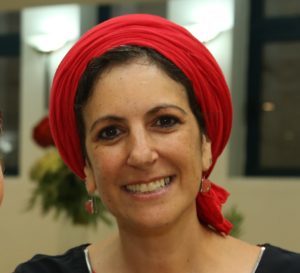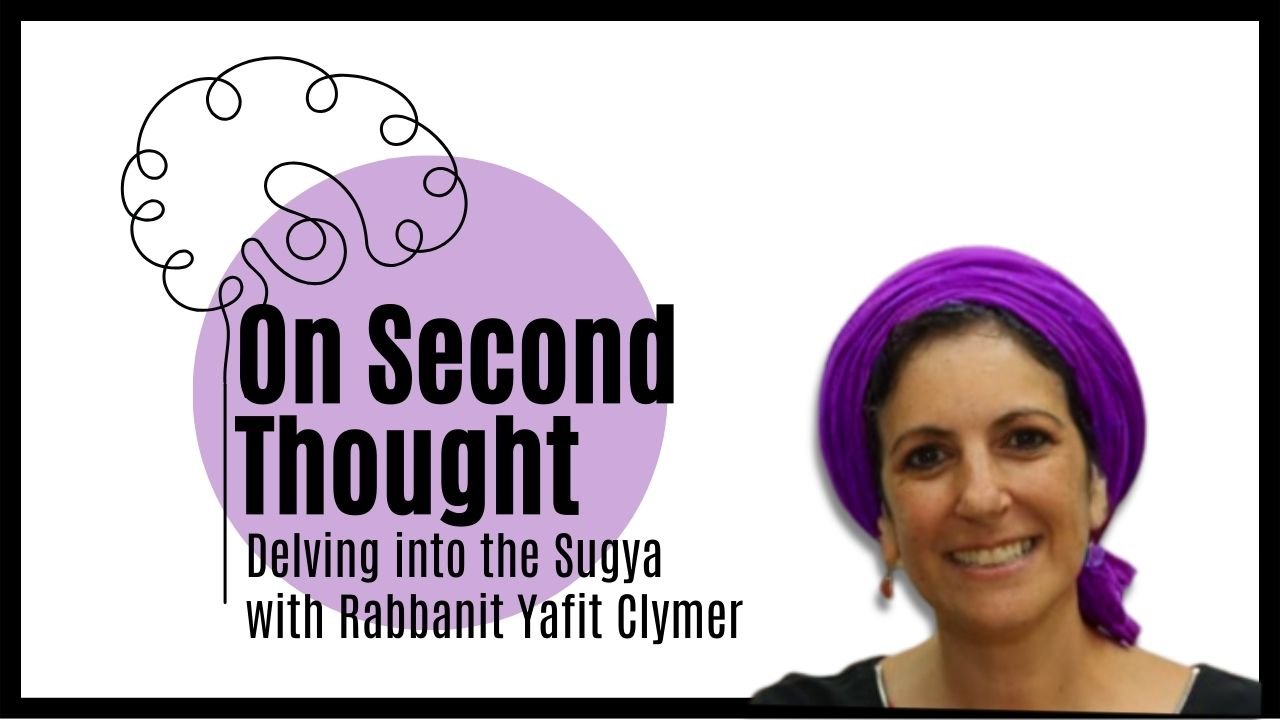On Second Thought: Delving Into the Sugya with Rabbanit Yafit Clymer
Bava Batra 26 27 28
Listen here:
Watch here:
Sources:
בבא בתרא כז
With regard to a tree that extends into the public domain, one cuts its branches so that a camel can pass beneath the tree with its rider sitting on it.
בבא בתרא ס (סוף פרק חזקת הבתים, אחרי פרק לא יחפור)
רַבִּי יַנַּאי הֲוָה לֵיהּ אִילָן הַנּוֹטֶה לִרְשׁוּת הָרַבִּים. הֲוָה הָהוּא גַּבְרָא דַּהֲוָה לֵיהּ נָמֵי אִילָן הַנּוֹטֶה לִרְשׁוּת הָרַבִּים, אֲתוֹ בְּנֵי רְשׁוּת הָרַבִּים הֲווֹ קָא מְעַכְּבִי עִילָּוֵיהּ. אֲתָא
The Gemara relates: Rabbi Yannai had a tree that was leaning into the public domain. There was a certain man who also had a tree that was leaning into the public domain, and the general public was preventing him from leaving it there,
down. The Gemara answers: Because of the statement of Reish Lakish, who said: Adorn [keshot] yourself and afterward adorn others, i.e., act properly before requiring others to do so.
In order to explain the essence of the laws of domains on Shabbat, the Gemara cites what the Sages taught in the Tosefta, that there are four domains for the halakhot of Shabbat: The private domain, and the public domain, and two additional domains: The karmelit, which is like neither the public domain nor the private domain, and an exempt domain, which does not fall into the category of domains.
The Sages taught: A person should not throw stones from his property into the public domain. An incident occurred involving a certain individual who was throwing stones from his property into the public domain, and a certain pious man found him. The latter said to him: Lowlife [reika], for what reason are you throwing stones from property that is not yours into your property? The man mocked him, as he did not understand what he meant, as the property from which he was throwing stones was his. Some days later, he was forced to sell his field from which he had thrown the stones. And he was walking in the same public domain into which he had thrown them, and he stumbled on those same stones. He said: That pious man said it well to me when he said: For what reason are you throwing stones from property that is not yours into your own property, since that property no longer belongs to me, and only the public domain remains mine to use
בבא בתרא כ”ז
By contrast, when Ravin came from Eretz Yisrael, he related that Rabbi Yoḥanan says: Both in the case of a tree that is close to a boundary and a tree that leans into a neighbor’s yard, one brings first fruits and recites the verses, as it was on this condition that Joshua apportioned Eretz Yisrael to the Jewish people, i.e., that they would not be particular about such matters.
Introduction to the regulations of Yehoshua ben Nun – (Rabbi Dov Berkowitz, the daily page, Tractate Baba Kama – page 11)
The “ten conditions” that the Gemara attributes to Yehoshua ben Nun mainly deal with the dramatic change taking place in the lives of the people in the transition from years of being in the desert to the challenges of sovereignty and economic survival in his country. There is a real fear that oppressive livelihood needs and the building of estates, each in his family and tribe, will lead to separation between those who until now lived in one camp around God’s tabernacle. “The Yehoshua Regulations” state that along with the division of the land into private estates there is an obligation to maintain the foundation of the basic partnership of the people in the common domain in the longed-for land
למי שייכת רשות הרבים? / במבי שלג
Who does the public domain belong to? / Bambi Sheleg
When we were children, the sea belonged to everyone: anyone could go to the beach and wade in the waves. When we were children, the advertisements appeared between the pages of newspapers and over the airwaves. The potential buyers used to be enticed by means of beautiful and stylish shop windows, in which products intended for sale were presented. The streets, buildings, grounds and recreation sites were free of advertisements. […] And this is not just sticky nostalgia. Slowly, not in one day, the landscape changed. Almost without us noticing, someone will warm the sea. Someone set him a private beach. Someone has organized a beach for himself, which can only be entered for a fee. Someone else got a private road concession. Without us noticing, the advertisements took over the roads, the sidewalks, the windows, the buildings, the gas stations, the decency, the public parties. The only problem caused by all these happenings is that they did not ask us, the public, if we agree. Decide for us. And so, without asking us our opinion, they took over property and rights that are ours – of the many, of the collective, of the public.; […]
Ḥizkiya taught: “Israel are scattered sheep” (Jeremiah 50:17). Israel is likened to sheep. Just as, if a sheep is struck on its head or one of its limbs all its limbs feel it, so it is with Israel; one of them sins and all of them feel it.
Rabbi Shimon bar Yoḥai taught:
This is analogous to people who were sitting in a ship.
One of them took a drill and began drilling a hole.
His counterparts said to him: ‘What are you sitting and doing?’ He said to them:
‘Why do you care? Am I not drilling under myself?’
They said to him: ‘Because the water will rise and flood the ship we are on!’
![]()
Hadran’s Beyond the Daf shiurim are also available by podcast on
Beyond the Daf is where you will discover enlightening shiurim led by remarkable women, delving deep into the intricacies of Talmudic teachings, and exploring relevant and thought-provoking topics that arise from the Daf.





